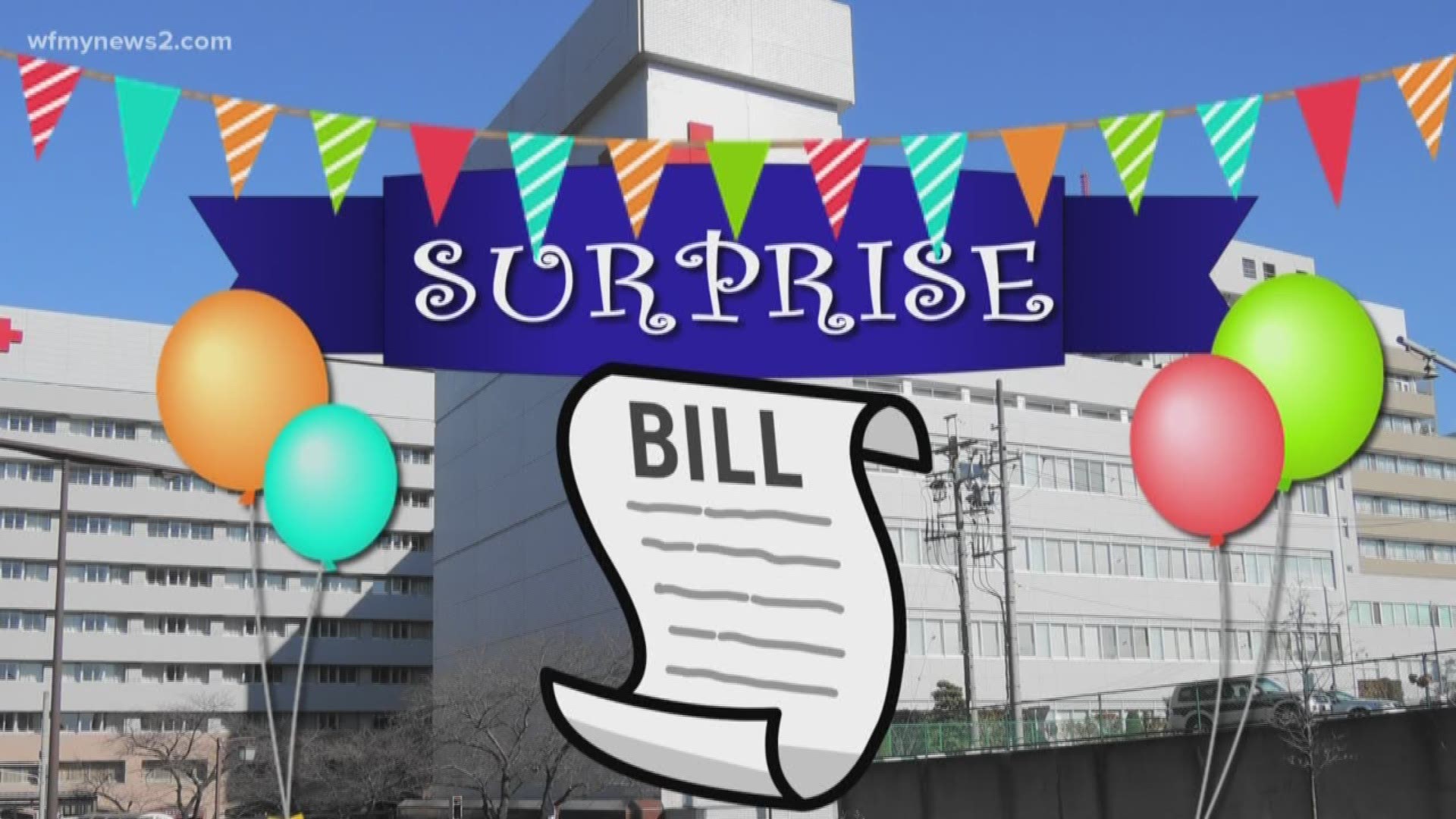Have you been blindsided by a surprise medical bill?
It's a growing problem and has gotten the attention of the nation's highest office--the president.
President Trump urged Congress to put an end to surprise medical bills on Thursday, outlining from the White House's Roosevelt Room a list of priorities the administration hopes will provide the basis for bipartisan legislation to solve the problem.
Surprise medical billing happens when a patient is treated by an out-of-network provider, usually in an emergency or surgical situation, without his or her knowledge. Surprise billing can happen even when the patient is being treated at an in-network hospital.
The out-of-network doctor or other health care provider then bills the patient directly for the difference between what the insurance company will cover and what the provider charges, often adding up to astronomical amounts. A teacher from Texas who attended Thursday's White House event, for instance, discussed the six-figure bill he received after being treated for a heart attack. A doctor talked about the $17,850 bill his daughter received for a urine test after back surgery.
The problem is widespread: Four out of 10 respondents to a recent Kaiser Family Foundation poll said they had an unexpected bill from a hospital, lab or doctor in the past year. Often these bills are reduced after patients appeal to their insurers or providers. But that process can take months of stressful and complicated negotiations that don't always work.
The administration's outline encourages lawmakers to prohibit billing for amounts above the in-network allowed amount in emergency situations. It also suggests mandating that patients be informed about any out-of-network providers and related costs when scheduling non-emergency care.
The administration's outline does not offer details of exactly how to eliminate surprise medical bills, but the ideas already being discussed in and out of Congress are causing plenty of debate. Here are some of the most talked about policy changes that will likely come to the forefront in reaction to the President's address this week.
Arbitration. A third-party determines a fair price in a surprise billing dispute. The idea behind this process is that both parties — the provider and the insurer — would offer realistic prices and reimbursements when they know third-party arbitration is involved. New York State passed arbitration legislation four years ago and has seen out-of-network emergency bills decrease dramatically. But the Trump administration isn't a fan of arbitration and insurers say it does nothing to bring down inflated provider prices.
State and federal benchmarks. This approach would cap the amount patients pay when out-of-network charges are made. The state would set the amount a health plan must reimburse a provider or, barring that, insurers would default to a federal formula setting the price. Providers are worried that benchmarks would be set too low under this system.
Bundling. This entails hospitals and hospital-based physicians using one, consolidated bill for services and reimbursements instead of billing separately. Bundled billing, say advocates, would help keep physicians and hospitals in line with the same network. Providers, insurers and health-care advocates worry that this approach could cause more confusion among consumers and make it harder to understand charges on what are already hard-to-understand statements.
Enforce current rules. "There's no need for new legislation," said Rita Numerof, president of healthcare consulting firm Numerof & Associates, explaining that long established statutes exist that mandate emergency rooms care for everyone, regardless of insurance. "Most policies have a clause saying if you are treated for an emergency out-of-network it will be seen as an in-network situation and the insurer will cover it," Numerof said. Critics of current laws say they don't prevent providers from billing the consumers directly and new legislation is needed to protect patients.
Look to the states for ideas. Nine states have passed laws in recent years concerning surprise medical bills, many of which are being used as models for Congressional efforts. State laws are limited, however, because they do not cover patients with employer provided insurance plans, which are covered by federal law.

